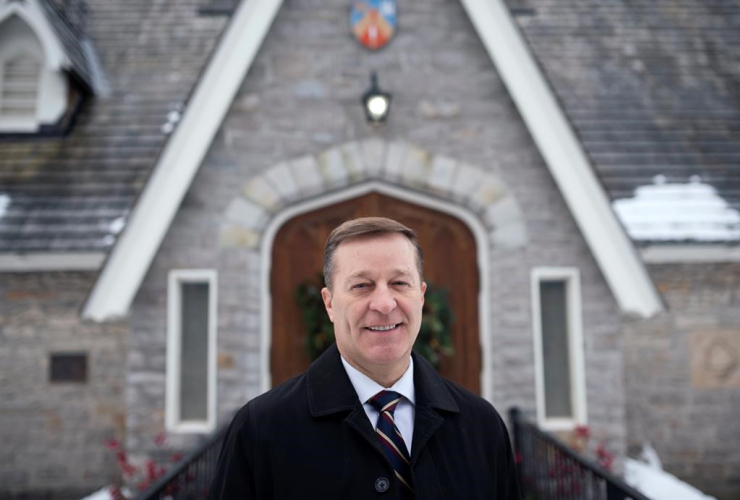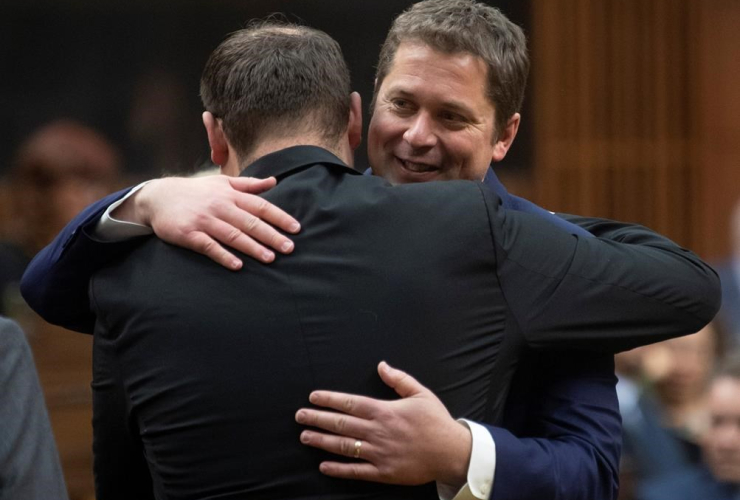The race for leadership of the federal Conservatives begins officially on Monday.
The party released the rules for the contest late Saturday, and candidates have just over two months to pull together $300,000 and get 3,000 signatures in order to have their names on the ballot.
"This is going to be an exciting and competitive contest that shows Canadians how Conservatives are ready to do the hard work that comes with being a government in waiting," said Lisa Raitt, a former Conservative MP who is the co-chair of the leadership organizing committee, in a statement released Saturday night.
Both the financial requirements and the need to have 3,000 signatures are spread out in stages.
By Feb. 27, candidates will have to pay $25,000 and have the signatures of 1,000 members from 30 different ridings in seven different provinces or territories.
After that, they'll have until March 25 to meet the remaining financial and other obligations. The fee itself is in two parts — a non-refundable $200,000, and a $100,00 deposit candidates will get back if they follow all the rules.
The leadership race had begun unofficially in mid-December, when current leader Andrew Scheer announced he'd quit as soon as his replacement was chosen.
He linked his decision to the increasing pressures the role was placing on his family, but it came after weeks of intense criticism of the Conservatives' performance in the campaign, and his own performance in particular.
There are also lingering questions about how he was spending party money given to him to help with the costs of being leader, including whether he should or shouldn't have spend those funds on tuition for his childrens' school. Scheer has yet to publicly address that issue.
Those likely to enter the contest include current MPs Pierre Poilievre and Erin O'Toole, former cabinet minister Peter MacKay and former Quebec premier Jean Charest.
Whoever wins the 2020 race will be just the fourth party leader since the Conservative party was formed after a merger between the Canadian Alliance and Progressive Conservatives.
The first was Stephen Harper, who ran the party from 2004 to 2015. He resigned after losing government in the 2015 election. Afterwards, Rona Ambrose was chosen to be the interim chief by the party's MPs and senators.
In 2017, Scheer won the party leadership race after 13 rounds of voting, beating out former Quebec Conservative MP Maxime Bernier by an exceptionally slim margin.
That campaign took place over nearly a year-and-a-half, but Scheer's resignation and the fact there's currently a minority Liberal government saw a lot of pressure placed on the party to mount a much speedier process this time around.
The race is a process designed to test the organizational abilities of the party's next leader, said Dan Nowlan, the other co-chair of the organization committee.
"It's not only your ability to fundraise, but more importantly your ability to inspire Canadians to join our party, and to do so under tight timelines similar to the pressures of an election," he said in a statement.
The Conservatives will elect their next leader at a convention on June 27 in Toronto.
To vote in the election, members will have to sign up by April 17.
This report by The Canadian Press was first published on Jan.11, 2020.





Comments